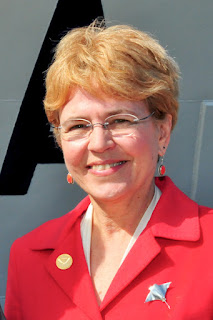Photo credit: Wayne Hoggard, Stanford News
Office of the Spokesperson
Department of State
Washington, DC
July 17, 2015
U.S. Science Envoy Dr. Jane Lubchenco will travel to South Africa,
Mauritius, and Seychelles July 17 – 31 in support of President Obama’s
initiative to strengthen the United States’ science and education
relationships overseas. Dr. Lubchenco is serving as the first U.S.
Science Envoy for the Ocean, building on the momentum created at the Our
Ocean Conference held at the State Department in June 2014. Dr.
Lubchenco will engage with local leaders, scientists, representatives
from the academic and business communities, and ocean users to build and
strengthen opportunities to understand the ocean and use its resources
sustainably.
Dr. Lubchenco is a Distinguished University Professor of Marine
Biology at Oregon State University and former Administrator of the
National Oceanic and Atmospheric Administration (NOAA). She has served
as president of the American Association for Advancement of Science
(AAAS), and is a member of both the International Council for Science
and the Ecological Society of America. Dr. Lubchenco has also played an
important role in setting the national scientific agenda through her 10
years of service as a member of the National Science Board. As one of
the most highly cited ecologists in the world, eight of her publications
are recognized as science citation classics. Dr. Lubchenco is an
elected member of the National Academy of Sciences, the American Academy
of Arts and Sciences, and the American Philosophical Society.
The U.S. Science Envoy Program is a core element of the
Administration’s commitment to global engagement in science and
technology. Since the announcement of the program by President Obama in
Cairo in June 2009, 13 Science Envoys have visited 30 countries.
The Science Envoys travel as private citizens and share the knowledge
and insights they gain abroad with the U.S. scientific community upon
their return. These exchanges contribute to further cooperation and
dialogue with key international partners.
Subscribe to:
Post Comments (Atom)

No comments:
Post a Comment